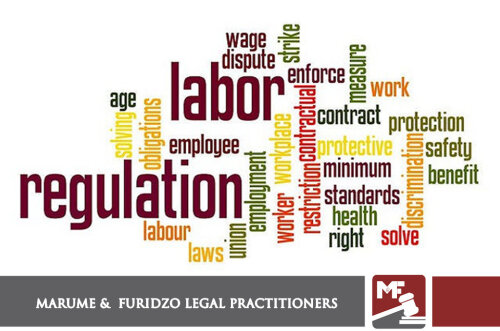Best Child Visitation Lawyers in Zimbabwe
Share your needs with us, get contacted by law firms.
Free. Takes 2 min.
Free Guide to Hiring a Family Lawyer
Or refine your search by selecting a city:
List of the best lawyers in Zimbabwe
About Child Visitation Law in Zimbabwe
Child visitation in Zimbabwe is a key aspect of family law dealing with the arrangements that allow a non-custodial parent to spend time with their child. The law aims to balance the child's best interests with the parents' rights. Visitation rights are typically established following a separation or divorce and are intended to ensure that children maintain meaningful relationships with both parents. The legal framework for child visitation falls under the Children’s Act and other related statutes, which outline the rights and responsibilities of each party involved.
Why You May Need a Lawyer
There are several scenarios in which individuals may require legal assistance when dealing with child visitation matters in Zimbabwe:
- Disputes: When parents or guardians disagree on visitation schedules or arrangements.
- Modifications: If there is a need to modify existing visitation orders due to changes in circumstances, such as relocation or change in work schedule.
- Enforcement: When one parent is not complying with the court-ordered visitation agreement.
- Complex Family Dynamics: In cases involving high-conflict situations, allegations of abuse, or when a parent has a history of substance abuse.
- Legal Representation: To ensure fair representation in court, especially when the other party has legal counsel.
- Mediation: To facilitate negotiations and reach amicable agreements without going to court.
Local Laws Overview
The key aspects of local laws regarding child visitation in Zimbabwe include:
- The Best Interests of the Child: This principle is the primary consideration in visitation disputes. It assesses factors like the child's emotional needs, the parent-child relationship, and the child's safety.
- Custody and Guardianship: The laws distinguish between custody, which involves day-to-day care and control, and visitation, which pertains to the non-custodial parent's right to spend time with the child.
- Parental Rights and Responsibilities Act: Details the responsibilities parents have towards their children, including ensuring access to both parents unless it is deemed harmful to the child.
- Family Court System: This system handles disputes related to family matters, including child visitation, providing a structured legal framework for resolution.
- Mediation Services: Courts often encourage mediation as a first step before litigation to reach an agreement on visitation matters amicably.
Frequently Asked Questions
1. What is child visitation?
Child visitation refers to the legally granted right for the non-custodial parent to spend time with their child following a separation or divorce.
2. How is the amount of visitation determined?
The court determines visitation amounts based on the child's best interests, considering factors like parental relationships and the child's emotional and physical well-being.
3. Can a visitation order be changed?
Yes, a visitation order can be modified if there are significant changes in circumstances affecting the child's welfare or parents' capabilities.
4. What do I do if the other parent is violating the visitation order?
You may need to seek enforcement through the court system or request legal counsel to address non-compliance with the visitation order.
5. Can a child refuse visitation?
While older children may have input, they cannot unilaterally refuse visitation. The court considers their preferences alongside their best interests.
6. Do grandparents have visitation rights?
Grandparents can apply for visitation rights, but approval will depend on the child's best interests and existing family dynamics.
7. What if the custodial parent wants to move abroad?
Relocation can significantly impact visitation. Legal approval is generally required, and the move must serve the child's best interests.
8. Are visitations supervised?
Visitations can be supervised if there are concerns about the child's safety or well-being during time with the non-custodial parent.
9. Is mediation required in visitation disputes?
Courts often encourage mediation to reach mutual agreements before considering litigation, which can be less adversarial and more cost-effective.
10. How can I prepare for a visitation court hearing?
Gather all relevant documents, consult with a legal professional, and prepare to present evidence supporting your case in line with the child's best interests.
Additional Resources
For more information and support, consider the following resources:
- Zimbabwe Family Court: Offers guidance and handles legal proceedings about family law matters.
- Local Legal Aid Organizations: Provide legal assistance to those unable to afford private counsel.
- Zimbabwe Lawyers for Human Rights: May offer support in cases involving children’s rights.
- Zimbabwe Women Lawyers Association: Provides legal services and advocacy focusing on women and children's issues.
- Mediation Centers: Offer services to help resolve disputes without resorting to litigation.
- Government Social Welfare Offices: Can provide support and referrals in visitation matters.
Next Steps
If you require legal assistance with child visitation in Zimbabwe, consider taking the following steps:
- Consult with a qualified family law attorney to discuss your situation and explore your legal options.
- Gather all pertinent documentation, such as previous court orders, communication records, and any evidence of non-compliance or changes in circumstances.
- Attend mediation sessions if encouraged or ordered by the court to proactively resolve disputes.
- Stay informed about your rights and responsibilities as outlined in the relevant Zimbabwean family law statutes.
- If cost is a concern, seek assistance from legal aid services or inquire about pro bono legal services that may be available.
Lawzana helps you find the best lawyers and law firms in Zimbabwe through a curated and pre-screened list of qualified legal professionals. Our platform offers rankings and detailed profiles of attorneys and law firms, allowing you to compare based on practice areas, including Child Visitation, experience, and client feedback.
Each profile includes a description of the firm's areas of practice, client reviews, team members and partners, year of establishment, spoken languages, office locations, contact information, social media presence, and any published articles or resources. Most firms on our platform speak English and are experienced in both local and international legal matters.
Get a quote from top-rated law firms in Zimbabwe — quickly, securely, and without unnecessary hassle.
Disclaimer:
The information provided on this page is for general informational purposes only and does not constitute legal advice. While we strive to ensure the accuracy and relevance of the content, legal information may change over time, and interpretations of the law can vary. You should always consult with a qualified legal professional for advice specific to your situation.
We disclaim all liability for actions taken or not taken based on the content of this page. If you believe any information is incorrect or outdated, please contact us, and we will review and update it where appropriate.
Browse child visitation law firms by city in Zimbabwe
Refine your search by selecting a city.

















